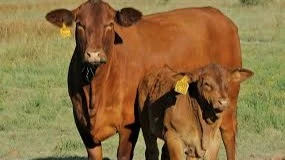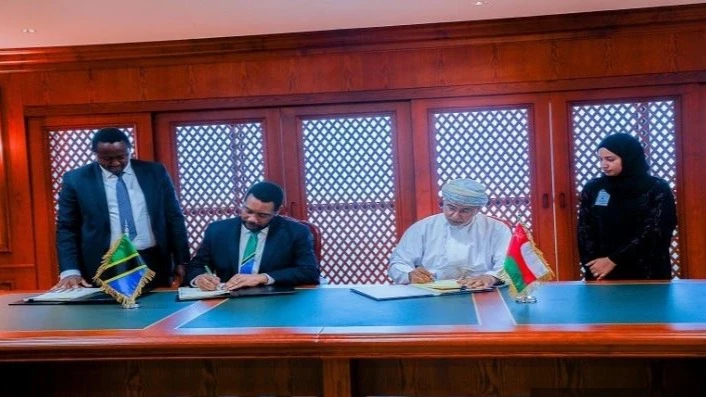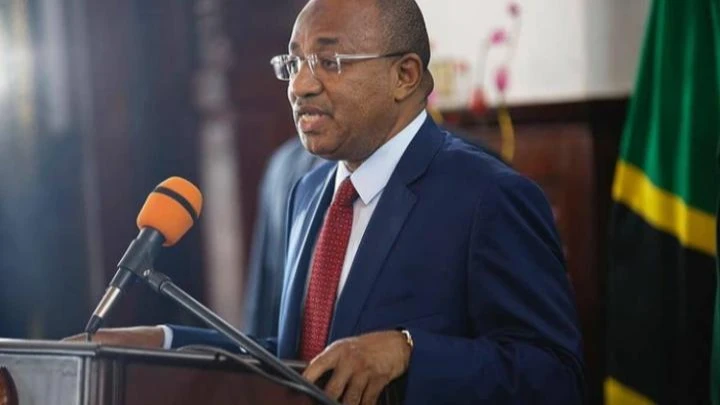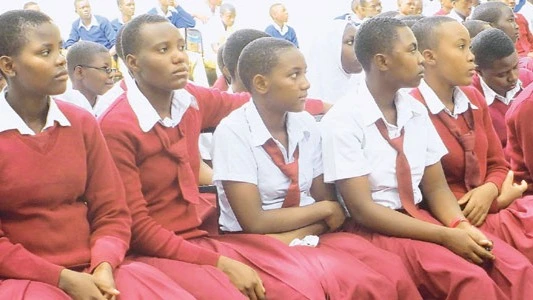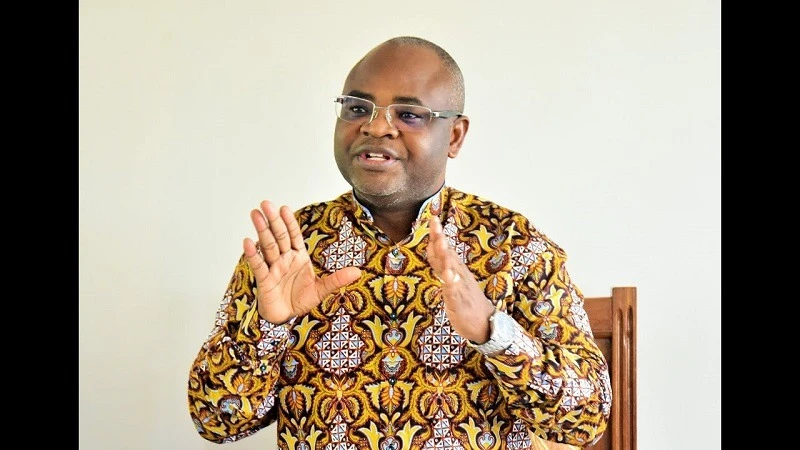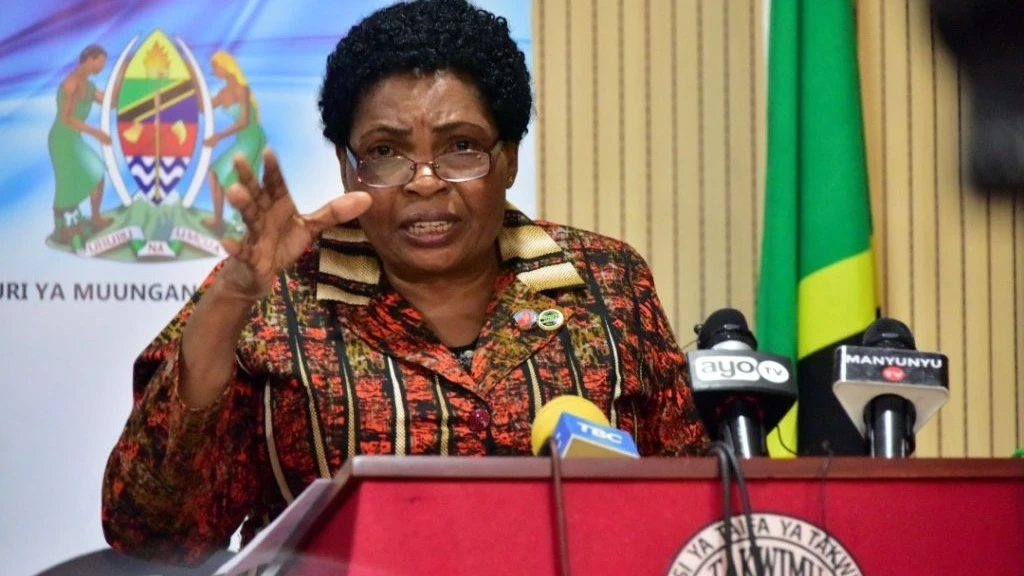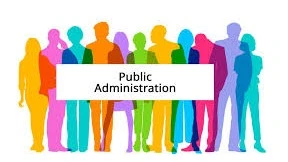UN Biodiversity COP16 (Oct 21 - Nov 1) in perspective
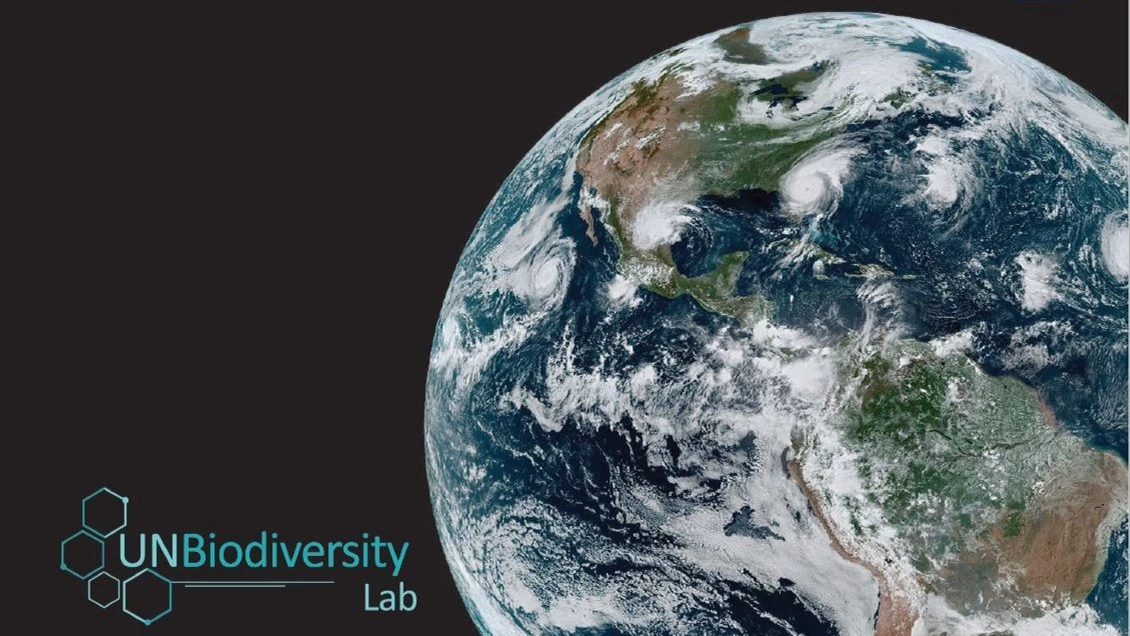
THE African Wildlife Foundation (AWF) has commended the significant advancements made at the 16th meeting of the Conference of the Parties (COP16) to the United Nations Convention on Biological Diversity (CBD) held in Cali, Colombia, from October 21 to November 1 under the theme “Peace with Nature”.
It has noted that the conference highlighted a strengthened global resolve to promote inclusive, equitable and sustainable conservation efforts. However, the lack of closure in negotiations and the suspension of the meeting sends a clear message that more work needs to be done to reach a common agreement on substantive issues related to reversing biodiversity loss globally.
The conference was intended as a critical status check on the world’s progress towards protecting biodiversity, while all indicators are now flashing red.
Participating countries were urged to submit either national targets or revised national biodiversity strategies and action plans for the conference.
Curiously, only 115 countries out of a possible 196 submitted national targets and 36 presented national biodiversity strategies and action plans aligned to the Global Biodiversity Framework. This specifies the agreed set of targets and strategies adopted at (the December 7 – 19, 2022) COP15 in Montreal, Canada.
One of AWF’s major concerns is that countries are not on track to meet the target of protecting 30 per cent of the world’s land and water by 2030 – a vital goal to curb biodiversity loss and prevent the degradation of ecosystems essential to planetary health.
“This is below target and without substantial progress in conserving critical ecosystems, the cascading consequences for all countries will be severe, affecting food security, climate resilience and global stability,” noted Frederick Kwame Kumah, AWF’s Global Leadership and Policy lead.
Finance remains the primary sticking point, with a notable disconnect between pledges and the level of funding necessary to meet the targets.
The AWF official said that despite expectations that US$20 billion would be committed to conserving the planet’s biodiversity by 2025, contributions to the Global Biodiversity Framework Fund (GBFF) have only reached a paltry US$370 million.
Additionally, there has been almost no advancement in shifting harmful subsidies that drive deforestation, pollution and other forms of environmental destruction.
“While 46 African countries have submitted national targets, with Uganda among the first globally to submit an updated national biodiversity strategy action plan, the suspension of COP16 without a decision on resource mobilisation signals a pause at a critical juncture, underscoring the need for greater cooperation and funding to turn commitments into actionable change,” emphasized Simangele Msweli, AWF’s senior manager for youth programmes.
Despite the disappointing end to negotiations in Cali, AWF noted certain steps forward, one being the creation of the Subsidiary Board for Full and Effective Participation of Indigenous Peoples and Local Communities (IPLCs) in work undertaken under the Convention on Biological Diversity.
AWF described this as a landmark achievement that recognized the critical role IPLCs play in safeguarding ecosystems and biodiversity.
It said the body would be a fundamental means of ensuring that IPLCs have a formal platform to contribute their deep-rooted knowledge and experience, which have been vital for effective conservation practices.
It also saw this step as aligning with AWF’s own mission of elevating IPLCs in conservation governance, fostering culturally respectful and ecologically sound policies.
The establishment of the Cali Fund for benefit-sharing from the use of Digital Sequencing Information (DSI) meanwhile underscores a commitment to creating fairness in the utilisation of natural assets and their components.
AWF says it supports efforts that empower local and Indigenous communities to access the economic benefits derived from their biodiversity resources, ensuring that these resources are utilised sustainably and ethically.
This outcome promotes a conservation model that preserves natural habitats and contributes to economic resilience and long-term community development.
The elevation of the need to recognize and support the essential role played by Afro-descendant communities in conservation is a testament to their historical and ongoing commitment to environmental stewardship.
AWF has openly acknowledged this as a step towards correcting long-standing inequities and ensuring that these communities have a voice in shaping conservation strategies impacting their lands and livelihoods.
By championing their contributions, COP16 is seen paving the way for more inclusive partnerships and the integration of diverse perspectives that enrich conservation efforts.
The adoption of the first-ever Global Plan for Biodiversity and Health acknowledges the intricate link between ecosystem health and human wellbeing.
This outcome underscores that conserving biodiversity is an environmental imperative and a public health priority.
As the world navigates post-pandemic recovery, AWF has expressed support for the protection and restoration of natural habitats to strengthen resilience against future health crises.
It has appealed to its global partners to integrate health considerations into conservation strategies, fostering partnerships between public health, environmental sectors and local communities to promote a holistic, nature-based approach to global health security.
Just ahead of the November 11 – 22 UN Climate Change Conference (UNFCCC COP 29) in Baku, Azerbaijan, AWF has commended the biodiversity conference negotiators for reaffirming the critical connection between biodiversity conservation and climate action, emphasizing the importance of cooperation between biodiversity and climate conventions.
AWF chief executive officer Kaddu Sebunya has affirmed: “Addressing the intertwined biodiversity and climate crises is essential for achieving lasting, impactful solutions. AWF champions cohesive policies and collaborative strategies, emphasizing the importance of forging stronger partnerships and ensuring robust commitments to climate and conservation finance to co-design initiatives that build resilience, particularly in regions like Africa, where the dual impacts of climate change and biodiversity loss are most severe.
“Committed to equity, effectiveness and the urgency of collective action, we stand ready to work hand in hand with global partners to drive meaningful progress that aligns with the aspirations of all committed to this vital mission.”
With the suspension of convenings after two weeks of intense negotiations at the UN’s CBD-COP16 in Calí, Colombia, Linda Krueger – The Nature Conservancy’s Head of Delegation and Global Director of Biodiversity/Infrastructure Policy – summarised key outcomes.
She said: “After the momentous agreement of the Kunming-Montreal Global Biodiversity Framework (GBF) at CBD-COP15, this was supposed to be the time where the world moved from agreement to action and made Peace with Nature. However, despite round-the-clock negotiations, Parties have failed on the first hurdle to show that they have the ambition and will to fully put the vital plans of the GBF into effect.
“There had been traction on key areas including the creation of the Cali Fund – an innovative mechanism that will stimulate private finance for nature by sharing the benefits generated through commercial use of Digital Sequencing Information of genetic resources.
“There has also been growing corporate commitment to biodiversity; and burgeoning momentum behind mainstreaming – the embedding of GBF thinking across economic sectors – as part of wider efforts to galvanise resource mobilisation.
“Elsewhere, agreement on the process for identifying potential marine protected areas bodes well for the 30x30 target of conserving 30 per cent of Earth’s ecosystems by 2030, while recognition is also clearly growing of the need to align climate and biodiversity policies more closely.
“Additionally, the agreement to establish a subsidiary body to include Indigenous Peoples and Local Communities (IPLCs) in future biodiversity talks is a welcome move for recognising traditional knowledge as vital for the protection of global and national biodiversity.
“But with the COP suspended without the adoption of a resource mobilisation strategy to scale up finance for biodiversity – and mainstream biodiversity in the financial planning of governments, the financial sector and businesses – little traction can be made on any of the agreements at all. It is our hope Parties can reconvene the COP as soon as possible, and fast-track the action the world desperately needs to move the GBF forward.
“Ringfencing sufficient funding for nature remains an overwhelming priority – the fresh wave of financial commitments made in Calí, though welcome, were insufficient to bridge the ‘nature gap’ we highlighted pre-COP15, and resource mobilisation remains a key item yet to be adopted. Simply put: we need more finance ministers to start showing up to CBD-COPs!
“The irreversible effects of biodiversity loss will not pause while Parties figure out a process for approving the budget. Urgent action to finalise these negotiations must be the priority of all Parties.
“The number of countries yet to submit national biodiversity roadmaps (NBSAPs) to the UN also speaks to a collective capacity crunch at policymaking level.
“That said, by the time of the COP’s suspension, 119 countries had submitted some level of GBF-aligned national targets – indicating that even in turbulent times, governments are still treating nature loss with increasing seriousness. It is this spirit of pragmatic environmental momentum at global level that we need to carry forward to COP29 in Baku, Azerbaijan.”
* The Nature Conservancy is a global conservation organisation dedicated to conserving the lands and waters on which all life depends. Guided by science, it creates innovative, on-the-ground solutions to the world’s toughest challenges so that nature and people can thrive together.
The agency fights to tackle climate change, conserve lands, waters and oceans at an unprecedented scale, provide food and water sustainably and help make cities more sustainable.
It works in 81 countries and territories through a collaborative approach that engages local communities, governments, the private sector and other partners.
Headquartered in the Kenyan capital, Nairobi, AWF is meanwhile a registered organisation in the United States and a registered charity in the UK and Canada.
Top Headlines
© 2024 IPPMEDIA.COM. ALL RIGHTS RESERVED







